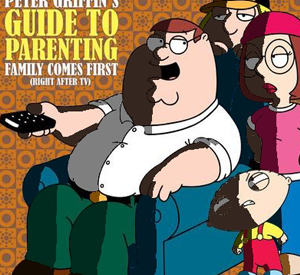Everyone has a community of followers. Some are active admirers. Some are passive acquaintances. Some are people we’ve met in the past and then lost touch. Some are friends of friends. But all share the common element of knowing us, me (or you).
The natural consideration when trying to build or grow a business is to reach out to our ‘community’ and try to develop opportunities from the ones we already know. This is natural. In some cases it is strategic. Anyone who has taken a commission sales job knows the first calls are to your ‘friends and family’.
But wait. Does that strategy really work? Isn’t that the hardest call of all to make?
I hate cold calls, but I’d much rather talk to a total stranger than try to sell something to one of my friends. That call is a huge challenge. What will they think of me? Will they be offended that I tried to use our friendship to sell them something? Will they avoid me the next time they see me? Will they talk badly about me? These are all real concerns that are shouting inside my head before I dial the phone.
They are also nothing more than preconceived notions. Ideas and fears that I’ve developed based on my self perception, my feeling for my product, my trust in the relationship.
Getting Past Your Preconceived Notions
So what is the answer? How do I move past my preconceived notions, pick up the phone, and tell my community about what I have to offer them. Here are a couple of steps that should help make the process a bit easier.
Define Your Value. The easiest way to minimize the reputational risk (real or perceived) of selling is to define the value you can provide to others. When you stop looking at what you do as a ‘sale’ and redefine it in terms of how others will benefit the risk will seem less daunting. Note to sales managers, having strict call metrics that define success strictly in terms of dials or dollars runs the risk of sabotaging your sales force. If they can’t define success in a way that makes them feel good, peak performance will be compromised.
Respect the Relationship. Have your list of ‘warm’ prospects divided up based on how you know them. Be real. If they are a bestie, converse with them in that manner. You wouldn’t be pushy with your best friend (or maybe you would) but you would let them know if you thought something was cool. The same is true for lesser relationships. Be respectful and remind them of how you know each other. Offer them the opportunity to learn more – avoid being pushy. Very few sales are made by rude and pushy people. In the long run your relationship is worth much more than a single sale so treat it appropriately.
Start Slow and Accept the Outcome. A buddy of mine called the other day and said ‘Hey Dave, I came across this new product and thought of you. I’ll send you some info. Let me know if you have an interest’. He called me back a week later to see if I’d taken a look and we discussed it in more detail. That was a great sales call. A very easy ‘ask’ followed by a personal call to see what I thought. Even though I wasn’t really interested in the product, I enjoyed connecting again and will be able to refer him to anyone I run into. Maybe not a sale, but my buddy strengthened our relationship.
Say ‘No’ If You Must. The key to marketing or selling to a group of ‘warm’ prospects is being able to not make a call once in awhile. I realize that sales managers all over the world are now blocking our website based on this advice, but I will double down. If you don’t feel it makes sense to risk a relationship, don’t do it. I work closely with an Insurance training firm. I have a close relative who sells insurance. I don’t want to mix family with this business, so I’ve never made the call. If it comes up over Thanksgiving, I’ll be happy to discuss, but I respect our relationship too much to be any more aggressive.
Trust the System. The ultimate solution for overcoming preconceived notions is to have a tried and true sales and marketing system. When you can trust the system, you’ll never worry about what your prospect thinks about you. If we can help you with that, we’d love to talk.


Facebook Comments